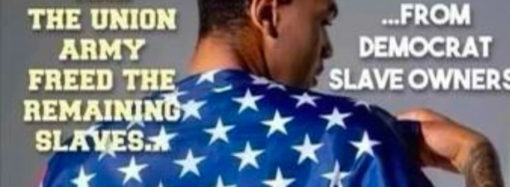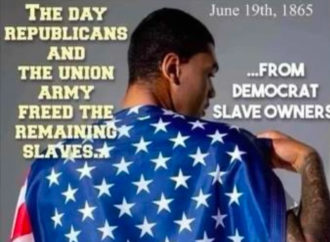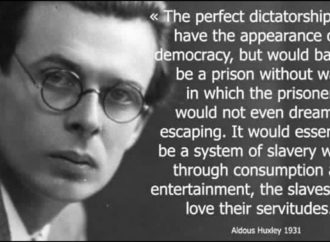The credo of victimhood and the rejection of the dreaded “traditional” female role blind women to the fact that no one could possibly love someone who exhibited the opposite traits of being “harsh, un-loving, un-supportive, and selfish,” yet these are the traits we see growing in women, and required of the “modern” woman.

There is no influence more destructive to contemporary male/female relationships than the modern fictions regarding romance and romantic love. Romantic fantasy is the female counterpart to heroic fantasy for males, to which it is closely related. Both are immature indulgences of fantasies of personal power and public recognition or confirmation of that power. In fact, the term romance itself derives from a form of medieval tale of heroic or marvelous achievements designed to appeal to the imagination and provide some palliative for the generally humdrum and burdensome lives of most people. Hm. Not much seems to have changed since 800 AD.
Romance as it is commonly used today is nothing more than a pretty name for the mating dance among human beings. It is essentially sexual, but its sexual nature is hidden under some very erroneous conceptions about the nature of love. Due to the fact that sexuality is so repressed and negated in many cultures, while remaining an inherent ruling force in the lives of the citizens of those cultures, romance has developed as a sterilized form of sexual expression stripped of the “dirtiness” and shamefulness of being honest about what it really is.
The conflicting and impossible notions of romantic love are nowhere better illustrated than in the over 25 million romance novels consumed each month by American women.
The heroines are always beautiful, never plain, and the men they entrance with this great beauty are always wealthy and powerful rogues. There are no dull accountants, greasy mechanics, or laborers with rough and calloused hands. These rogues walk the perfect fine line between just enough respect for the woman’s wishes that they never force her beyond what she wants, while they always force her beyond what she says. If the “no means no” dictum were applied, virtually all these men are rapists, but noble ones: the kind of men that the heroines really want to ignore their symbolic protests. The perennial popularity of the old classic “Gone With the Wind” among women, while men generally regard it as stupid, shows the enduring nature of the Rhett Butler type of character in women’s fantasies.
Romantic characters are always larger than life.
This causes no serious problem for those who retain the ability to distinguish fantasy from reality, but it wreaks havoc on the lives of those forget that the fantasy is essentially escapism and begin to regard it as a prescription for how life is or needs to be conducted. Characters in romantic fantasies bear no resemblance to real people. If they did, it would be history not romantic fantasy. Unfortunately many people today have lost touch with reality and have become as unrealistic in their notions of personality and personal conduct as they have become in their notions of physical beauty.
A woman acquaintance of mine recently made a profoundly disturbing statement.
I had been listening to her for several months bashing men and making it clear that any man who was going to get access to her (presumably gold lined) panties was going to have to be prepared to support her in the manner to which she wanted to become accustomed. (ie. carry her around on a satin pillow.) She got quite a thrill out of the nickname “Princess” which she had acquired. One day I noticed her sitting by herself looking morose. I walked over, sat down beside her, and provided her a conversational opening to talk about it if she were so inclined.
She sighed and said, with tears in her eyes and in the best pitiful and breathy delivery I have heard since Olivia Hussey in Franco Ziffarelli’s Romeo and Juliet, “My heart is sooo empty.” Damn fool, I, took this as an honest statement from someone in emotional pain. After listening to her for several minutes recount the depth and intensity of her pain and all the circumstances in her life contributing to it, I tried to provide some gentle feedback on some of the things she was doing to make it unlikely that a man who might be able to fill some of that emptiness could find his way through the minefields and machine guns she had surrounding her heart, so he could lay his paycheck at her feet, or would be motivated to do so. Her response was most enlightening, and at the same time scary and disheartening.
After several minutes justifying her actions based on her past treatment by men, during which I kept saying that I wasn’t questioning whether she was justified in her actions but rather simply pointing out that they didn’t seem to be getting her what she wanted, she made the incredible statement that the best “relationship” she’d ever had happened entirely in her own mind and didn’t require the participation of the male at all. This woman had completely lost the ability to distinguish the reality of relationship with a flesh and blood male from the fantasy she created in her own mind, and distinctly preferred the fantasy to any reality she had experienced.
Several years ago I might have followed that comment up with an argument trying to get her to see that the very term “relationship” kinda implied the presence and participation of another human being, but after thousands of hours of such argument I have learned the complete futility of it. “Don’t try to teach a pig to sing. It wastes your time, and it ANNOYS the pig!” (Robert Heinlein) I simply said “Oh” and walked away sadly reflecting on the fact that this attitude seems so prevalent in women these days.
Normally, when an adult so loses touch with reality that they have relationships with non-existent people we call it mental illness. We think it is “cute” for someone below the age of 10 to have imaginary playmates, but we worry about someone who can drive a car, vote, and own a gun who can’t tell the difference between a flesh and blood person and one whom they’ve made up. I wonder what would have happened if this woman’s imaginary lover had told her that in order for him to truly love her forever that she had to kill the president.
Of course I’m being facetious, but this is the perfect illustration of the source of so much of the breakdown of relationships between men and women which is being blamed on men’s “oppression” of women. I suppose that, to someone who lives in a perfect world inside her own head, it is oppressive to demand that they face reality. However it is a form of oppression that I consider perfectly acceptable when making decisions about the people I want to play significant roles in my life, whether that be a mate, a friend, a public policy maker, or certainly a surgeon. How many people would lay down on a table and put a knife in the hands of someone who said “The most successful operation I ever performed was in my own head and didn’t require a patient“?
It also illustrates precisely why men find it nearly impossible to take women seriously
Unless that woman has some form of power over them, as well as why men are not anxious to give women that power. Men are far from “perfect” beings and will never make “perfect” husbands, lovers, or whatever else it is that a woman is looking for a man to be; particularly not when the standard of “perfection” exists entirely within the head of someone who cannot distinguish reality from fantasy. If I were “perfect”, perhaps in 2000 years I would have a religion named after me. However, I’m completely aware that I’m not “perfect” and have no desire to be the next messiah for people to kill other people in my name. I have even less desire to allow people to kill, imprison, enslave, entrap, or dictate to me what my life “should” be based on what their imaginary playmates tell them.
Every man I know has a deep and sincere desire to love and please a woman (except those who have that desire toward a man)
And supposedly that is what some women want as well. However, since neither I nor any other man has any chance of competing with a figment of someone’s imagination, designed in every detail to be perfect and fulfill her every whim. I am no longer willing to tip-toe through the minefield and face the machine gun fire to lay my paycheck at her feet, so I can find my way into one of those empty hearts. I sit on the sidelines and watch women barricade themselves into their misery.
Now is when the story really begins to get scary.
Some weeks later a mutual acquaintance told me that the woman had claimed I had been making a pass at her. What made this delusional, no hallucinatory, was the fact that the day we spoke was 4 weeks to the day after I had slid my motorcyle into a guard rail, breaking a collar bone and sustaining internal injuries. My bruised lung did not show up right away, but ended up sending me to the emergency room exactly one week before this conversation, with my Dr. afraid that I had a pulmonary embolism. Getting back on the bike and having another wreck was about the only thing I could have been less interested in than any between-the-sheets athletics. To this day I am not sure whether the woman lied intentionally about it, or whether this was just another relationship which happened entirely in her mind and didn’t require my participation. I’m just damn glad that she hallucinated ( or lied ) that it was a pass and not a rape. Even trying to be friendly and kind to a woman seems to be becoming risky.
This interaction highlights so many of the issues which are ripping apart the ability of men and women to manage even the barest resemblance of peaceful coexistance. The acid tests of sense and reality have given way to the primacy of “how it feels“: the subjective placement of self at the center of an island universe into which everything falls and nothing escapes. Women have social permission to be “black holes”: to take everything and give back nothing; not even the understanding that sexuality is the last thing on the mind of a man whose body is broken.
But, more than broken bodies, men today are walking around with broken spirits. Faced with a world filled with women who are so indoctrinated in their entitlement to victimhood, men have been taught that they will be attacked for asking for anything; much less having the arrogance to expect something in return for caring about, giving to, and trying to love women. For many women the old principle of reciprocity, the “give and take” which allows groups of people to co-exist without slaughtering each other, is imposition, “oppression.” The “modern woman’s” version of “give and take” is “everyone else gives, I take.”
Having fallen for the foul lies of “male power and privilege” and having been duped into believing in the ultimate and ubiquitous “bogeyman” of “THE Patriarchy“, many women are trapped in a frenzy of theft and looting. In their fervor to “get” men, and “get” their fare share from men who they have been tricked into believing have it, women have blinded themselves to the ways in which they steal from and victimize other women.
A perfect example of this was provided recently by a high profile web feminist. Ever anxious to find evidence to further the fictions of universal victimhood and oppression for all women, she “deconstructed” a popular piece of media tripe, “My Best Friends Wedding,” for insidious anti-female messages. According to Diane Glass, web feminist:
“Here are three main messages, hidden behind the movie’s comic script:
- “You can’t be friends with men AND their lovers.
- “Men can have careers and love. Women cannot have both-they have to choose between the two. Why? Because men can marry younger women and when they do, men do not have to make sacrifices of any kind. (this in itself is an interesting to ponder. It seems femininity is lost as a woman ages. Could it be that femininity is naivety and an immaturity that blindly follows?)
- (and finally) Modern women end up with gay men.
Pretty serious stuff to be taking from nothing more than the fact that the character portrayed by Julia Roberts could not, in only 4 days, break up a wedding that had been in the works for some time and involved vast social networks of very powerful people. Ms Glass goes on to make 2 more points in her deconstruction that, themselves, would be impossible to prove without the unassailable axiom of universal victimhood of women:
Choices for modern women are fraught with the harsh choice of platonic love, Broadway tunes and friendships with men that never journey to the heights of the devoted and pure love, this movie suggests, that traditional marriage offers.
and,
The message is clear: Women sacrifice regardless; it is freedom for a price and compromise is the role of women, modern or traditional.
While these are all compelling laments of victimhood, my “traditionalist” view is that there are certain social realities which make this characteristic of life in general: not just the lives of “Modern Women.” Herein lies the fundamental conflict which drives gender politics. Absolutely central to this conflict lies the desire to “have it all,” which seems to go with an unwillingness to pay any price for it whatsoever. This violates what I consider to be a fundamental principle of economics, as well as life: “There just ain’t no such thing as a free lunch.” In the end someone has to pick up the check.
My contention is that compromise is the role of anyone, male or female, who wants to live within a social structure. Implicit in the contract to receive the benefits of being able to live relatively free of anyone else’s predatory desire to take from us something we have and they want, is the agreement to be bound by the same social constraints and NOT to steal from someone else something they have and we want. All of the body of law and social practice revolves around this one principle. Everyone is constantly faced with choices of whether to be a thief and a looter, or to act with integrity and work to gain what they desire through the mechanism of effort applied over time. The concept of “entitlement” is a compelling one to the person who feels entitled, but is far less attractive to those who must pick up the check.
The sense of entitlement to an experience which is completely fictionalized leads to the suspension of all social rules and constraints.
While at the same time paradoxically locks the person into more of a prison than those constraints ever did. I wrote the author to point out a couple of implications that she had not mentioned. First: that the man was not a character at all, but rather a plot device, a prop in the competition between the two women for “the man prize.” Second: that the primacy of marriage to a woman’s happiness is just as present in this movie as it was 40 years ago, simply updated with new clothing and hairstyles. Characterizing the message as being “Women cannot have both careers and love, they must choose” obscures the real message, which is that career is only a fallback position, not even a consolation prize but a palliative for those who fall and skin themselves when they lunge for the brass ring of “romantic love.” In this case, the woman who fails to win “the man prize” is definitely “the loser.”
Her third point, that modern women end up with gay men, is actually the same as her first, that you cannot be friends with men AND their lovers.
Aside from the fact that this attitude dangerously denigrates the value of friendship and foolishly dismisses the value of Agape, non-sexual love, as compared to Eros, sexual love; it promotes a self-centeredness when it comes to love that is antithetical to love. Once again, the fundamental principle of reciprocity is absent. In relationships with gay men, women do not enjoy the built in power differential which sexual politics within a “romantic” relationship gives them. They must treat gay men fundamentally as equals, because they have nothing the gay man wants and needs which they can withhold as a means of exercising power. Gay men are even safer as friends for straight women than other straight women, because they seldom compete for the same “man prize.” Most men’s sexual affiliation is “either/or”, so gay men and straight women never end up competing for the same man. Straight men and women can be friends on the same basis, but once romantic politics enters the picture the friendship is often doomed because the heavy agenda of expectations that go with romance suddenly begin to lead to dissatisfaction with the person who was previously just fine the way he/she was.
The archetypal “chick flick,” “When Harry met Sally,” is a perfect illustration.
Early in the movie, Harry and Sally discuss how difficult it is for men and women to be friends: “because the sex thing is always there.” Years later, after supporting each other through ups and downs in their love lives and careers, she calls on him for comfort after learning that an old boyfriend is getting married. Someone else has “won” her “man prize.” Her value as the ultimate achievement of woman, i.e. to be called “wife” by some man, has been called into question. Harry is unable to hold the line on the friendship, and falls into the trap of proving her sexual value to her by the only means at his disposal: he goes to bed with her. The next scene shows Harry with his eyes as big as saucers and the perfect “oh shit! What have I done?” look on his face. The friendship is now doomed by the baggage of expectations of romance that go with the sexual script. Far more than MBFW, WHMS shows clearly that two people of the opposite sex, indeed, CANNOT be friends AND lovers. Once they go to bed, the old basis of the friendship is destroyed and Sally has complete social sanction to be as hateful as she likes toward Harry for not living up to his part of the romantic script.
In the romantic script, Harry clearly OWES Sally something for the bit of emotional comfort he attempted to provide her. This is where most men balk, and one of the primary reasons why so many of them do not call the next day. At this juncture, men have their choice of two roles in the romantic script: the lapdog or the cad. (Actually “cad” has fallen out of general usage today: replaced by the general purpse, one-size-fits-all “jerk.”) Canadian journalist Wendy Dennis (sic) puts it this way: “If a man puts his penis into a woman’s vagina, he must call her the next day.” “Guys would get this in a second if they had vaginas, but so far they don’t — that’s why I have to rattle on here.” In other words, possession of the magic vagina gives women the power to “make the rules.”
It’s not that men don’t “get” it, as the cliched complaint of women goes, it is that they don’t “BUY” it. The stupid nonsense about men fearing the “vagina dentata”, the cunt with teeth, is one of the most persistent pieces of childish foolishness. Men know that the teeth are in the steel jawed trap of the fictionalized script of romantic love/sex/marriage. The vagina is simply the bait. This is the arena where the most fundamental issues of male versus female power get played out. When a woman presents herself as not being after a (THE) commitment, the man is justified in assuming that sex is an equal exchange. In any real scenario of equality, the man would be just as entitled to a reassuring call the next day as the woman is. And, given the highly charged and politicized atmosphere of “date rape”, men are actually in more need of it today than women are: to reassure them that she had a good time and is not getting ready to press charges.
Men are fully aware that women frequently use sex to jump-start “romance.”
Prior to the expansion and blurring of concepts of rape, men had some chance of being avoiding being ensnared into a romantic fantasy by pointing out the contradictions between women’s pre- and post-coital behavior and statements. Now that the subjective experience of women has become the standard of law, while men’s experience is categorically denied and refuted, men are growing increasingly suspicious and distant.
Modern women really do have a raw deal right now
Not because of any of the reasons mentioned by the web feminist, but because of the point of view she promotes. Women are just as bound by the “Feminine Mystique” as they were 40 years ago, and cannot be happy without experiencing “true love” which is totally fictionalized and doesn’t exist, while they also have to live up to the old “Masculine Mystique” and experience “career success and satisfaction” which is equally fictionalized. The majority of men have never had careers, they had JOBS: stupid, meaningless, demeaning, boring, humiliating, JOBS! The statement that “men can have careers and love” is laughable to most men, as is ” men do not have to make sacrifices of any kind.” The very act of going to work each day; at a stupid, meaningless, demeaning, boring, humiliating, JOB! is regarded by most men as sacrifice enough in life to be able to ask for a bit of appreciation and peace and quiet in return. But in an environment of no reciprocity, that doesn’t even pass minimum standards. Men must do this AND meet women’s emotional needs as well, while men themselves are starving to death emotionally.
Men have been putting up with this for years
Yet will seldom jump up to protect themselves and demand some reciprocity. They will, however, generally jump up to protect a woman who is being threatened and protect her interests. Thus they get to play the hero, and remain caught in the eternal drama.
Where they can generally do nothing however, is the case where a woman is being victimized by another woman. The credo of universal victimhood blinds women to they ways in which they prey upon other women, as well as the extent to which they are victimized by other women. In the movie, as soon as the competition for “the man prize” began, the male was set up to be the bad guy.
Had the “morally superior” “modern woman” in MBFW prevailed, there would simply have been another female victim. Only this time it would have been the stereotype of men rather than a traditional role of women which had victimized her. The jilted woman would have had far more right to claim victimhood, by being abandoned, than the “modern woman” has the right to claim victimhood by having to make a choice. The fiction that feminism has used to promote itself is freedom of choice for women, yet that freedom is now seen as a burden and source of victimization. Obviously, that freedom of choice should only apply to women who choose to be modern, and women who choose more traditional roles should be punished for that choice by the same loss of “love” which was the modern woman’s punishment.
In other words, only women who make the “right” choice get to choose
Iin which case it is no choice at all, but simply a “new & improved” political orthodoxy to replace the “old & flawed” traditional one. Somehow the notion of equal rights has been twisted into the old familiar “but some are more equal than others.” Obviously, those who are more equal are the ones who should “have it all” while the rest of us pick up the check. Sneering at the “traditional” woman’s right to exercise her constitutional right to “the pursuit of happiness” by methods of her own choice, points out how patently elitist feminism really is.
The real reasons that “modern” and career women get left out in the cold when it comes to love are seen in the characterization of the dreaded “traditional” woman.
The first 4 words used to describe this person were “gentle, loving, supportive,” followed by “sacrificing.” David Buss, in “Evolution of Desire” points out how these traits are universal across ALL cultures as the most significant traits influencing the choice of life mate, above physical beauty for men and material wealth for women. The credo of victimhood and the rejection of the dreaded “traditional” female role blind women to the fact that no one could possibly love someone who exhibited the opposite traits of being “harsh, un-loving, un-supportive, and selfish,” yet these are the traits we see growing in women, and required of the “modern” woman.
There is no free lunch, and women now seem to resent the fact that they must pay for a man’s love by loving him in return. The sense of entitlement to romantic love is the greatest factor in the world today which renders women unlovable.
Real men have no possible way to compete with, or even live up to the standards set by, “imaginary playmates.”
And I suppose that it really shouldn’t surprise men that women would rather “have it all” entirely within their own heads than to have any of it in reality that they would have to pay for. Men have to take some of the responsibility for this. In being hooked by “hero” fantasies, picking up the check has a lot of power. Well, guys, our credit card has been revoked, our credit line maxed out. It’s COD from here on out.
The Biological Context of Sexuality and Mating
Psychology of Sex
The Nitty Gritty of Male Sexuality
Love
Shocking ! Simply Shocking!
Biology Basics
The Socio-Cultural Context
Back to EOTM: Gender War, Sexuality, and Love
Backed Up and Credited by – no-maam.blogspot.com
































Leave a Comment
Your email address will not be published. Required fields are marked with *